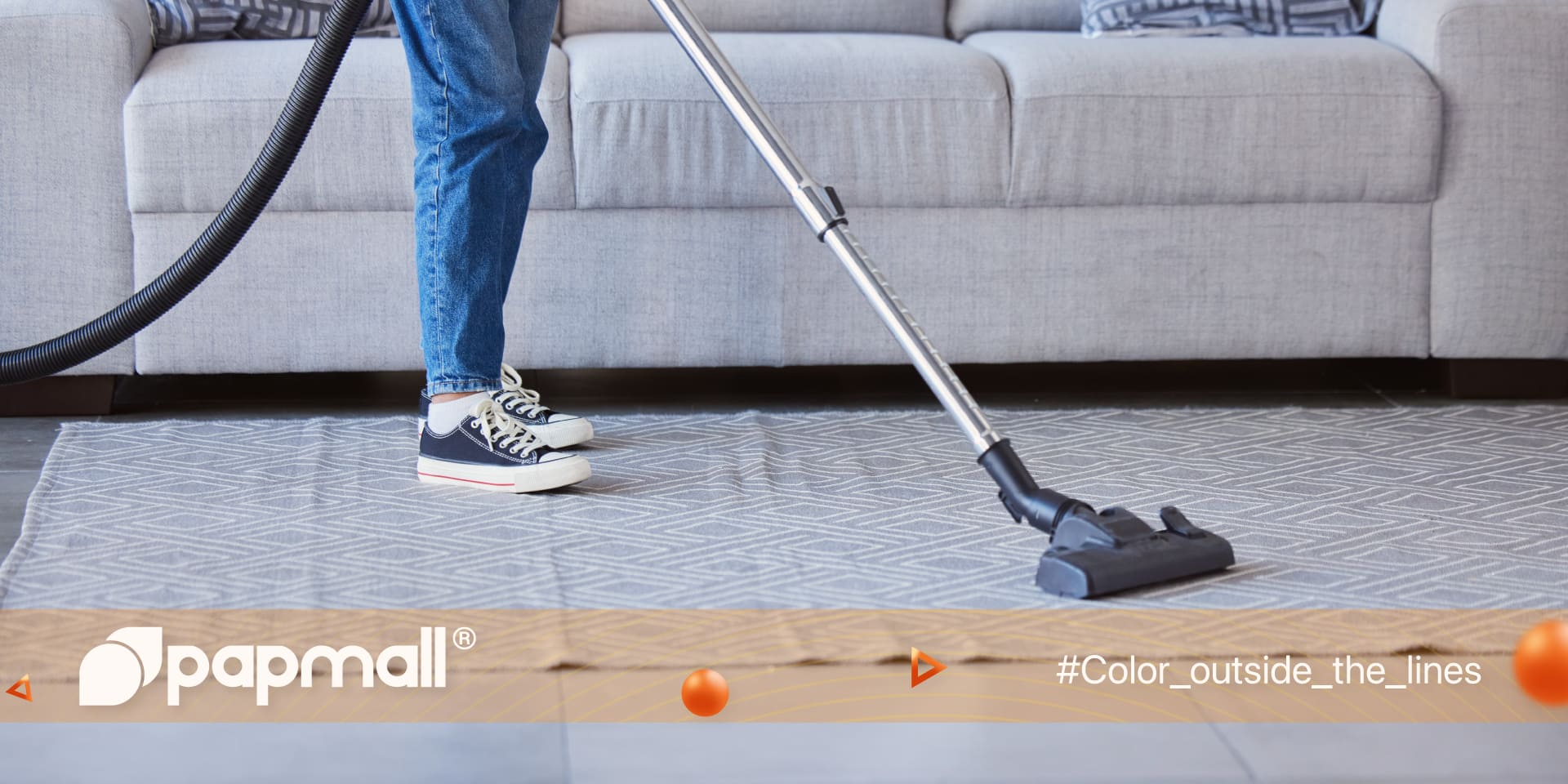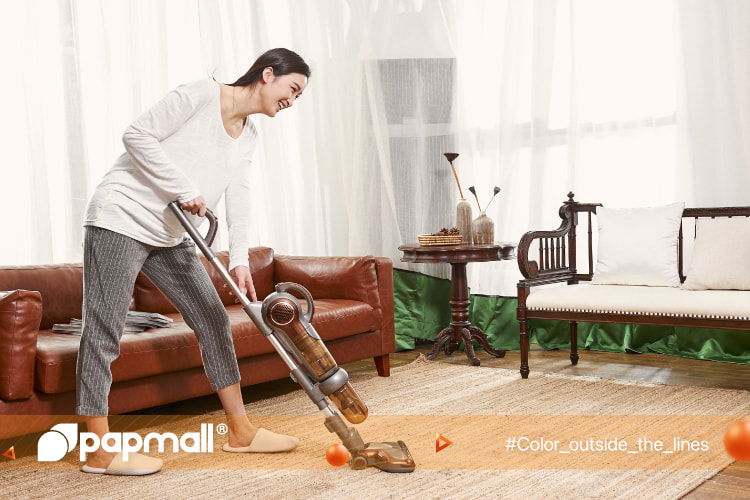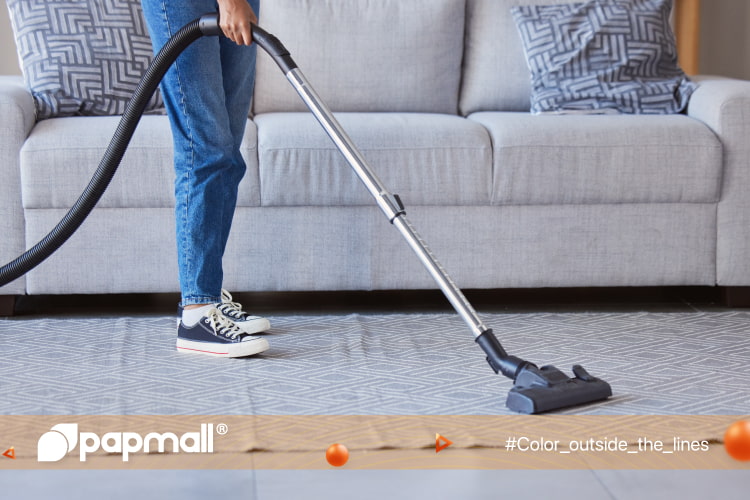The Ultimate Guide to the Perfect Vacuum Cleaner for Your Home

What's inside?
Choosing the right vacuum cleaner is essential for maintaining a clean and healthy living space. With so many options available, it can be challenging to find the perfect fit. From understanding key factors like suction power and filtration to considering your specific cleaning needs, we'll guide you toward finding the ideal vacuum cleaner that will make your home cleaning tasks effortless and effective. Let's get started!
1. What are the key factors to consider when choosing a vacuum cleaner for your home?
When selecting the best vacuum cleaner for your home, there are several key factors to consider:
- Flooring Type: Determine the types of flooring in your home. Some vacuums excel on carpets, while others are better suited for hard floors. Look for a versatile vacuum that can handle different surfaces effectively.
- Suction Power: Consider the suction power of the vacuum cleaner. Opt for a model with strong suction to ensure efficient dirt and debris removal, especially if you have carpets or pets that shed.
- Filtration System: Check the filtration system of the vacuum cleaner, particularly if you or your family members have allergies or asthma. HEPA filters are highly effective in capturing allergens and airborne particles, promoting cleaner air quality.
- Bagged or Bagless: Decide between a bagged or bagless vacuum cleaner. Bagged vacuums tend to trap dust and allergens more effectively, but you will need to purchase replacement bags. Bagless models offer convenience and cost savings but require regular filter cleaning.
- Maneuverability and Weight: Consider the weight and maneuverability of the vacuum cleaner, especially if you have multiple levels or tight spaces to clean. Lighter models or those with swivel heads and slim designs make maneuvering around furniture easier.
- Noise Level: Check the noise level of the vacuum cleaner, especially if you have noise-sensitive individuals at home or live in an apartment. Look for models with noise-reduction features for quieter operation.
- Attachments and Accessories: Assess the availability of attachments and accessories that suit your specific cleaning needs. Common attachments include crevice tools, upholstery brushes, and pet hair attachments. Ensure the vacuum has the necessary tools to tackle your cleaning tasks.
- Durability and Build Quality: Consider the build quality and durability of the vacuum cleaner. Look for reputable brands known for producing reliable and long-lasting models.
- User Reviews and Ratings: Read user reviews and ratings to gain insights into the performance and reliability of the vacuum cleaner you are considering. This can provide valuable information from real-world experiences.
- Price and Value for Money: Set a budget range and find a vacuum cleaner that offers the best value for your money. Consider the features, performance, and durability concerning the price.
By carefully considering these key factors, you can select the best vacuum cleaner for your home that suits your specific needs, flooring types, and budget. While suction power, filtration system, and durability are the most important features in a cleaning machine, you should focus on those three features firsthand while considering your purpose of use more than the others.

What are the key factors to consider when choosing a vacuum cleaner for your home?
2. How do I determine the right suction power for my vacuum cleaner?
Determining the right suction power for your vacuum cleaner depends on several factors, including the type of flooring in your home, the level of dirt and debris, and any specific cleaning needs you may have. Here are some guidelines to help you determine the appropriate suction power when choosing the best vacuum cleaner for your home:
- Flooring Type: Different flooring types require varying levels of suction power. For carpets, look for a vacuum cleaner with adjustable suction settings and a motorized brush roll to effectively lift embedded dirt. For hard floors, including hardwood, tile, or laminate, a vacuum cleaner with strong suction and a specialized bare floor attachment or a gentle brush roll is ideal.
- Dirt and Debris Level: Consider the typical dirt and debris level in your home. If you have pets that shed heavily or frequently deal with high-traffic areas, opt for a vacuum cleaner with powerful suction to effectively pick up pet hair, dirt, and debris. Look for models that specifically mention pet hair removal capabilities.
- Filtration System: If you have allergies or asthma, choosing a vacuum cleaner with strong suction and an efficient filtration system, such as a HEPA filter, is essential. HEPA filters can capture small particles and allergens, improving the air quality in your home.
- Adjustability: Look for a vacuum cleaner that offers adjustable suction power. This allows you to customize the suction level based on the specific cleaning task and surface. Adjustable suction is particularly useful when transitioning between different flooring types or cleaning delicate items like curtains or upholstery.
- User Reviews and Ratings: Read user reviews and ratings of vacuum cleaners to get an idea of their suction power and performance. Look for feedback from users who have similar flooring types or cleaning needs as your own to help gauge whether the suction power is sufficient.
Keep in mind that while suction power is important, other factors such as brush roll effectiveness, maneuverability, and filtration also contribute to a vacuum cleaner's overall performance. Consider the combination of these factors to choose the best vacuum cleaner with the right suction power for your specific home cleaning needs.
3. The average lifespan of a high-quality vacuum cleaner and tips on maintenance
The expected lifespan of a high-quality vacuum cleaner can vary depending on several factors, including the brand, model, usage frequency, maintenance practices, and overall build quality. On average, a well-maintained vacuum cleaner can last anywhere from 8 to 12 years or even longer. To prolong the longevity of your vacuum cleaner and ensure optimal performance, consider the following maintenance tips:
- Regular Cleaning: Empty the dustbin or replace the bag frequently to prevent clogs and maintain suction power. Clean or replace the filters as recommended by the manufacturer to maintain efficient airflow.
- Brush Roll Maintenance: Check the brush roll regularly for tangled hair, threads, or debris. Clean or remove any obstructions to prevent damage and maintain effective carpet cleaning.
- Belt Replacement: If your vacuum cleaner has a belt-driven brush roll, inspect the belt periodically for signs of wear or damage. Replace the belt as needed to ensure proper brush roll rotation and effective cleaning.
- Cleaning Attachments: Clean and maintain the various attachments and accessories that come with your vacuum cleaner. Remove any debris or blockages to ensure optimal performance and extend their lifespan.
- Power Cord Care: Avoid pulling or yanking the power cord, as it can damage the cord or the internal connections. Gently unwind and store the cord properly to prevent tangles or kinks.
- Regular Maintenance Checks: Periodically check the hoses, nozzles, and other parts of the vacuum cleaner for any signs of wear, damage, or blockages. Address any issues promptly to prevent further damage and maintain the vacuum's performance.
- Store Properly: When not in use, store the vacuum cleaner in a clean, dry area. Protect it from excessive dust, moisture, or extreme temperatures that can damage the internal components.
Remember, following the manufacturer's specific maintenance instructions outlined in the user manual is crucial for the longevity and warranty coverage of your vacuum cleaner. A vacuum cleaner is indeed useful for home cleaning as it efficiently removes dirt, dust, pet hair, allergens, and other debris from various surfaces. Regular vacuuming helps maintain cleanliness, improves indoor air quality, and contributes to a healthier and more pleasant living environment.

The average lifespan of a high-quality vacuum cleaner for home and tips on maintenance
4. What is the price range for a good vacuum cleaner, and how do I balance quality and budget?
The price range for a good vacuum cleaner can vary depending on factors such as brand, model, features, and overall quality. Generally, you can find reliable vacuum cleaners for home use in the following price ranges:
- Budget-Friendly: Entry-level or basic vacuum cleaners typically range from $50 to $150. These models may have fewer advanced features but can still provide satisfactory cleaning performance for regular household cleaning tasks.
- Mid-Range: Mid-range vacuum cleaners often fall between $150 and $300. In this price range, you can find a wider selection of models with enhanced features, better suction power, improved filtration systems, and more versatile attachments.
- High-End: High-end or premium vacuum cleaners can range from $300 to $800. These models often come from well-established brands and offer advanced features like high-powered suction, sophisticated filtration systems, intelligent sensors, and ergonomic designs. They are typically known for exceptional performance and durability.
When balancing quality and budget, it's essential to consider your specific cleaning needs and prioritize the features that matter most to you. Here are a few tips to help you make a decision:
- Assess Your Cleaning Requirements: Consider the type of flooring, the presence of pets or allergies, and any specific cleaning challenges you may have. This will help you determine the essential features you need in a vacuum cleaner.
- Research and Compare Models: Read reviews, ratings, and consumer feedback to gain insights into the performance, reliability, and durability of different vacuum cleaner models within your price range. Look for models with positive customer reviews and reputable brand names.
- Look for Value: Instead of focusing solely on the price, consider the overall value the vacuum cleaner offers. Assess the combination of features, performance, durability, and customer satisfaction. A slightly higher-priced vacuum cleaner with better features and a longer lifespan may provide better value in the long run.
- Consider Warranties and Customer Support: Check if the vacuum cleaner comes with a warranty or reliable customer support. A good warranty can provide peace of mind and protect your investment.
By considering your cleaning needs, researching models, and assessing the value proposition, you can strike a balance between quality and budget and find a vacuum cleaner that meets your requirements without overspending.
5. An e-commerce platform for selling the best vacuum cleaners for home
papmall® is a leading e-commerce platform dedicated to offering the best vacuum cleaners for home use. With a user-friendly interface and a vast selection of top-quality products, the platform provides a seamless shopping experience for customers seeking reliable and efficient vacuum cleaners. From uprights to canisters, cordless to robotic models, papmall® curates a diverse range of vacuum cleaners to cater to different cleaning needs and preferences. With a focus on customer satisfaction, papmall® ensures that each vacuum cleaner offered meets stringent quality standards, providing exceptional performance, durability, and value for money. Whether you're tackling carpets, hardwood floors, or pet hair, the platform has the perfect vacuum cleaner to make your cleaning tasks a breeze. Trust papmall® to deliver the best vacuum cleaner for your home, ensuring a clean and fresh living environment.
Is a vacuum cleaner useful for the home?
Yes, a vacuum cleaner is extremely useful for the home. It is an essential appliance for maintaining cleanliness and hygiene. Here are some reasons why a vacuum cleaner is beneficial for home use:
- Efficient Cleaning: A vacuum cleaner effectively removes dirt, dust, debris, pet hair, and allergens from various surfaces in the home. It can clean carpets, rugs, hardwood floors, tile, laminate, upholstery, and more, making it versatile for different cleaning tasks.
- Improved Indoor Air Quality: Vacuuming helps to eliminate airborne particles such as dust mites, pollen, pet dander, and allergens, thereby improving indoor air quality. This is especially important for individuals with allergies or respiratory conditions.
- Time-Saving: Vacuuming is generally faster and more efficient than other cleaning methods like sweeping or dusting. The suction power of a vacuum cleaner allows for thorough cleaning in less time, making it a convenient choice for busy households.
- Pet Hair Removal: If you have pets that shed fur, a vacuum cleaner with specialized attachments can effectively remove pet hair from furniture, carpets, and other surfaces. This helps to maintain a clean and hair-free environment.
- Versatility: Vacuum cleaners often come with various attachments and accessories, such as crevice tools, upholstery brushes, and extension wands. These allow you to clean hard-to-reach areas, tight corners, stairs, and other surfaces with ease.
- Hygienic Dust Collection: Many vacuum cleaners come with bagged or bagless options for collecting dust and debris. Bagged models securely seal the collected dirt, which is convenient for individuals with allergies or sensitivities. Bagless models offer the advantage of easy emptying and cost savings over time.
- Convenience: Vacuum cleaners are designed for ease of use, typically equipped with features like adjustable suction power, cord management systems, and ergonomic handles. They provide a convenient and hassle-free cleaning experience.
Overall, a vacuum cleaner is an indispensable tool for maintaining a clean and healthy home environment. It saves time, improves indoor air quality, and effectively removes dirt and allergens, making it an essential appliance for households of all sizes.
How does a vacuum cleaner work at home?
A vacuum cleaner is an essential appliance for maintaining cleanliness in the home. It works by creating suction to draw in dirt, dust, debris, and other particles from various surfaces, providing efficient cleaning.
The best vacuum cleaners for home use typically consist of the following components:
- Motor: The motor powers the vacuum cleaner, generating the necessary suction force. Higher-quality motors often result in stronger suction and better overall performance.
- Suction System: The suction system is responsible for pulling in dirt and debris. It typically includes a fan or impeller that creates airflow, which in turn generates the suction power to lift and capture particles.
- Filtration System: Vacuum cleaners feature a filtration system designed to trap dust and allergens. High-quality models often incorporate HEPA (High-Efficiency Particulate Air) filters, which capture microscopic particles and improve air quality, making them beneficial for individuals with allergies or asthma.
- Collection Method: Vacuum cleaners can collect dirt and debris using either a bagged or bagless system. Bagged models use disposable bags to trap the collected debris, while bagless models have a dustbin or container that can be emptied and reused.
- Cleaning Attachments: Most vacuum cleaners come with various attachments and accessories to enhance cleaning versatility. These attachments can include brushes, crevice tools, upholstery tools, and pet hair attachments, allowing you to effectively clean different surfaces and hard-to-reach areas.
Vacuum cleaners are beneficial for maintaining cleanliness in the home. They efficiently remove dirt, dust, allergens, pet hair, and other debris from floors, carpets, upholstery, and other surfaces. Regular vacuuming helps to keep the home environment hygienic, reduces allergens in the air, and enhances indoor air quality.
Investing in a reliable and high-performing vacuum cleaner designed for home use can effectively clean your living space, making it more comfortable, healthier, and visually appealing.
No posts found
Write a reviewRecent Posts / Categories
- Matching The Wedding Theme: Dress Inspiration Of The Mother Of The Bride Dresses
- Stay Ahead Of The Curve: Fashion Color Of The Year 2023
- Women’s Fashion Trends 2023
- Dive into the Hottest Bikini Trends 2023: Unveiling the Must-Have Swimwear Styles
- Exploring Spring Fashion Trends 2023
- Stepping into Style: Sneakers Trends 2023 to Watch Out For
- Stepping Into Style: The Hottest Boots Trends 2023 For You To Step In
- Pet Hair Patrol: Selecting the Ideal Robot Vacuum for Tackling Pet Mess
- The Ultimate Guide to the Perfect Vacuum Cleaner for Your Home
- The Rise of Loafers: A Fashion Trend Forecast for 2023
